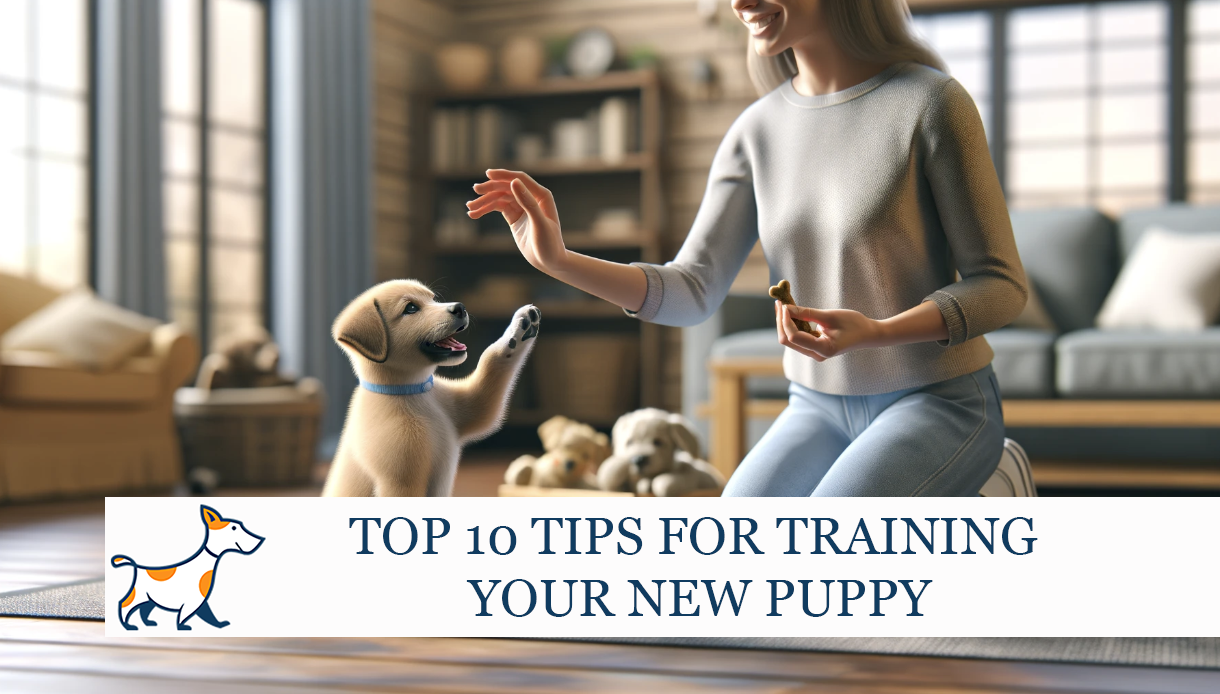Training a new puppy 



- Start early with socialization
. Introducing your puppy to various environments, people, and other animals early on helps them become more adaptable and confident
.
- Use positive reinforcement training methods
. Reward good behavior with treats
, praise
, or playtime
to encourage repetition of those behaviors.
- Establish a consistent feeding and potty schedule
. This helps regulate your puppy’s digestive system and makes house training easier
.
- Teach basic commands like “sit,” “down,” and “stay”
. These commands are essential for managing your puppy’s behavior and ensuring their safety
.
- Limit access to unsupervised areas of the house
. Use baby gates
or playpens to keep your puppy in safe, puppy-proofed areas when you can’t supervise them directly
.
- Use a cue word to indicate undesirable behaviors
. A firm “no” or other cue word can help your puppy understand which behaviors are not acceptable
.
- Provide plenty of physical exercise and mental stimulation
. Regular walks
, play sessions, and puzzle toys
keep your puppy healthy and mentally engaged
.
- Be patient and persistent with potty training
. Accidents will happen; consistency and positive reinforcement are key to successful potty training
.
- Schedule playtime and affection to strengthen bonds
. Regular interaction helps build trust and deepens your connection with your puppy
.
- Consider enrolling in obedience classes for additional learning
. Professional trainers can offer valuable guidance and socialization opportunities in a controlled environment
.
By following these tips, you can create an environment conducive to learning 






